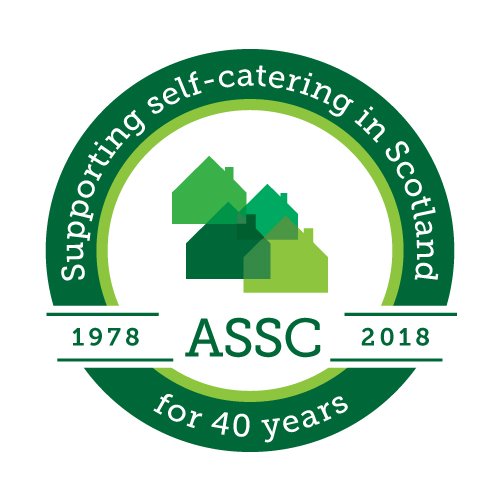The following update was shared with both the Scottish Tourism Alliance Council and the Scottish Tourism Emergency Response Group this week.
As a sector, self-caterers continue to be impacted by the ongoing pandemic, with resultant cancellations, restrictions and the lack of international guests.
However, the single biggest threat that the self-catering sector has ever faced, as well as our colleagues in the B&B and guest house sector, is the proposed STL licensing Order.
Our survey of almost 1,200 micro businesses evidenced that 49% of the sector would be rendered unviable if the proposals as drafted come into effect due to unsustainable costs and uncertainty in terms of bookings, investment, planning and overprovision clauses. This will have a dramatic ongoing impact into the wider tourism economy which the self-catering sector directly benefit:
- £21m to visitor attractions
- £32.5 to outdoor recreation and other sport
- £128m to the hospitality sector via bars, pubs and restaurants.
There is agreement from nearly all stakeholders about the need for some form of regulation, just not on what form this should take. Despite the years of discussion, there is still uncertainty about what the Scottish Government are seeking to achieve through their legislation. With the government introducing policies like overprovision into the legislation, this raises some fundamental questions about what they want to achieve through their licensing regulations which were meant to be about health and safety:
- If it is about health and safety and a level playing field – this can be addressed through the exemption proposal which is a balanced and proportionate approach, not forgetting that hotels, serviced apartments and caravans who are to be exempt are not licensed for H&S, and self-caterers and B&Bs are already bound by an HMRC taxation framework.
- If it is about anti-social behaviour – enforce existing legislation such as the Antisocial Behaviour Notices (Houses Used for Holiday Purposes) (Scotland) Order 2011.
- If it is about housing – introduce short-term let control zones using Planning Control Zone regulations, using empirical data to underpin any proposals, illustrating a demonstrable link between STL and loss of housing stock.
The ASSC has highlighted concerns about the draft legislation and the competency of the regulations:
- The self-confessed deficiency of data in the BRIA and latterly in response to PQs is nothing short of astonishing
- Potential illegality under the Provision of Services Regulations
- Potential human rights violation
- Duplication of regimes under other statutes
- Overprovision being ultra vires to Civic Government Act 1982
- Introducing legislation to provide the data to support the need for legislation[1] is not consistent with Better Regulation and the Regulator’s Strategic Code of Practice.
The ASSC has offered a proportionate, targeted, balanced compromise:
- Rather than scrapping licensing altogether, Article 3(1) of the Licensing Order could be amended to provide that an activity is exempt from the licence requirement if it is in respect of “registered accommodation” and the “registration conditions” (essentially the existing mandatory licensing conditions) are being complied with.
- This would have the effect of providing a robust and legally effective regulatory regime – if an owner fails to register or having registered fails to comply with the mandatory conditions, they would no longer be exempt from the licensing requirement and would therefore be in breach of the Licensing Order with resulting legal penalties.
The ASSC’s proposals help make the crucial distinction between bona fide businesses like self-catering, who have been a mainstay of the tourist offering in Scotland for decades, and amateur operators facilitated by online platforms; and will also deal with the worst excesses of the latter who cause the most disruption for residents and who are insufficiently regulated.
The ASSC appreciates the support of our colleagues from across the tourism sector and asks for that continued vocal support to enable us to protect bone fide businesses and save livelihoods.
Our concerns are further evidenced in the STERG Sector Group meeting minutes from 22nd September that were fed into the Scottish Government today (23rd September): 21-09-22 STERG Sector Update – Meeting Notes
21st September 2021
[1] https://www.assc.co.uk/parliamentary-questions-housing/
